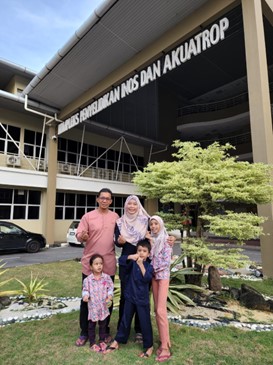
By Editorial Team
Based at the Satellite Oceanography and Marine Informatics Laboratory at INOS, Mr Mohd Azam bin Mat Yaacob is a dedicated researcher committed to advancing marine science through innovative technologies and collaborations. Despite his busy schedule, our editorial team had the opportunity to interview him, and we are excited to share the insights from our conversation below.
Editor: Can you tell us about your current research focus?
Azam: Certainly! Our current research is centered on mapping coral reefs and coastal areas using Unmanned Aircraft Systems, or Dones. This method is gaining popularity because drones provide clear images without cloud interference, flying at an altitude of just 120 meters. Previously, we relied on satellite images, but they were often obstructed by clouds in our study areas.
Editor: That sounds fascinating. Could you highlight some of your notable publications?
Azam: Sure, here are a few:
Editor: How does your research benefit the community and industry
Azam: This research is crucial for mapping coral species distribution in various Malaysian islands such as Redang, Bidong, and Kapas in Terengganu, Tioman in Pahang, Songsong in Kedah, and Kuraman and Rusukan in Labuan. This helps in better understanding and conserving these vital ecosystems.
Editor: What inspired you to get involved in research?
Azam: After completing my undergraduate studies in 2002, I worked as a research assistant for Prof. Dr. Rosnan Yaacob for four years. Participating in several major projects with INOS sparked my interest in coastal processes, leading me to pursue a master’s degree, which I completed in 2010. Since 2005, I’ve been a Science Officer at INOS, deeply engaged in marine environmental research.
Editor: Do you have a role model in science?
Azam: Yes, Wernher von Braun is a major inspiration. His ambitious goal of landing humans on the moon is incredibly motivating, even though we work in different fields. His journey from being forced to create rockets during the Nazi era to achieving his dream with NASA exemplifies perseverance and vision.
Editor: Can you share a particularly challenging experience in your research?
Azam: One unforgettable experience was facing severe storms during offshore expeditions in the South China Sea. These storms caused significant disruptions, with broken equipment and the inability to cook due to the ship’s instability. Despite months of planning, we must always be mindful of weather conditions and storm warnings at sea.
Editor: What keeps you motivated in scientific research?
Azam: My dedication to UMT and a deep personal passion for marine scientific research drive my persistence. Without this passion, no job, especially one involving extensive time at sea, would be fulfilling.
Editor: What has been your most exciting collaborative experience?
Azam: Collaborating with external agencies like the Department of Mineral and Geoscience Malaysia, the Department of Fisheries Malaysia, and Marine Parks Malaysia has been incredibly rewarding. These partnerships have expanded my research network and knowledge base significantly.
Editor: What advice would you give to young people interested in science?
Azam: I would advise them to choose any field within science that truly interests them. Genuine passion makes overcoming research challenges more manageable and enjoyable.
Editor: Lastly, what are your hobbies outside of your professional work?
Azam: Besides managing the UMT Staff Badminton team since 2007, I am an avid mountain climber. I’ve climbed numerous peaks in Malaysia, Japan’s Mount Fuji, and Indonesia’s Rinjani, Kerinci, and Bromo. I’m planning a trek to Annapurna Base Camp in Nepal this October. This hobby offers a refreshing change from marine environments and builds personal resilience.
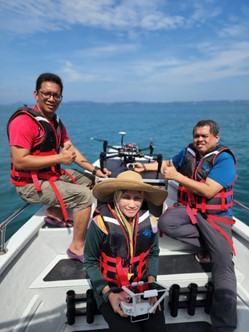
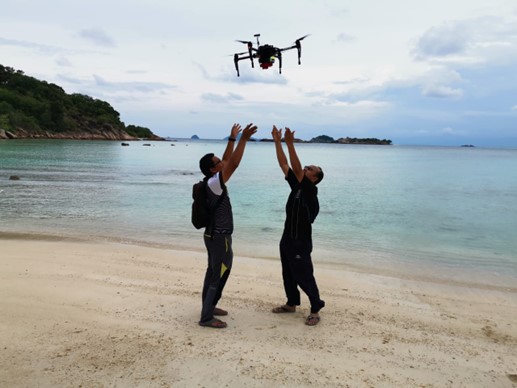
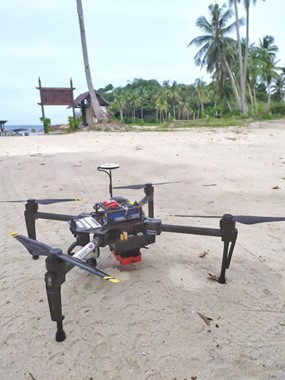
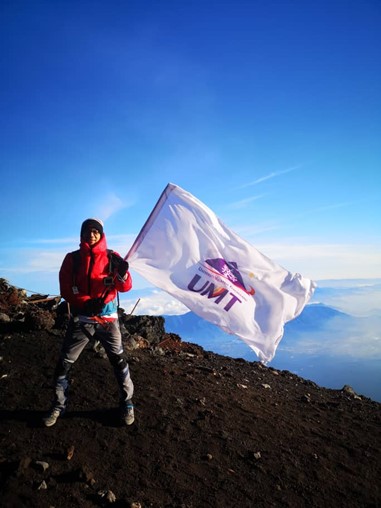
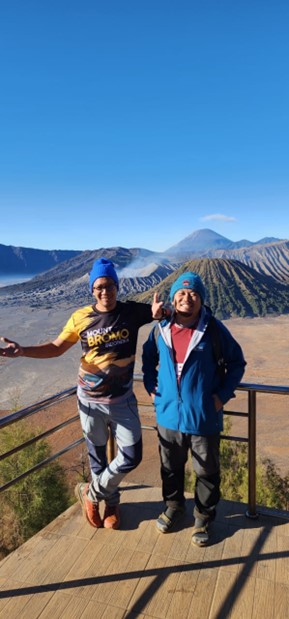
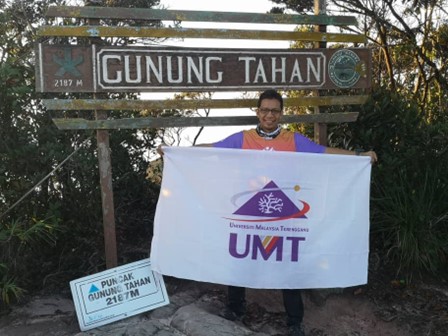
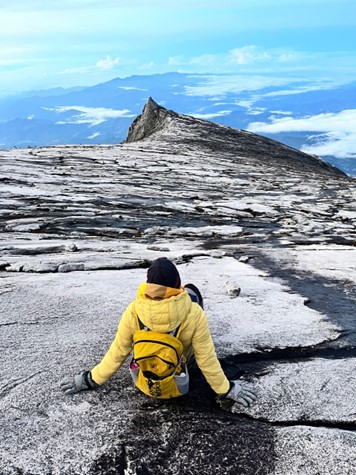

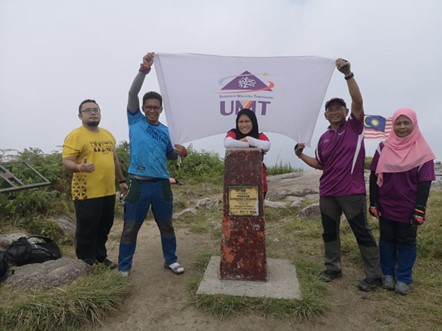
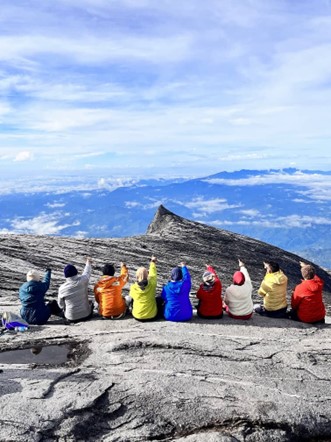
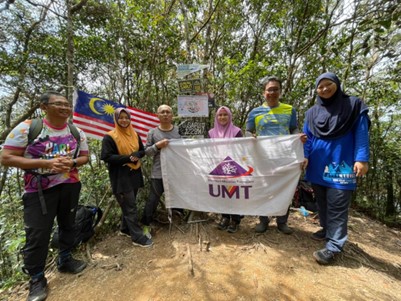
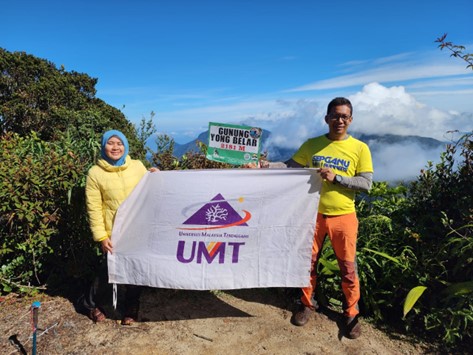
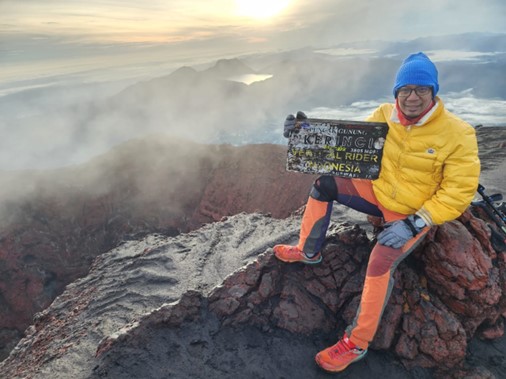
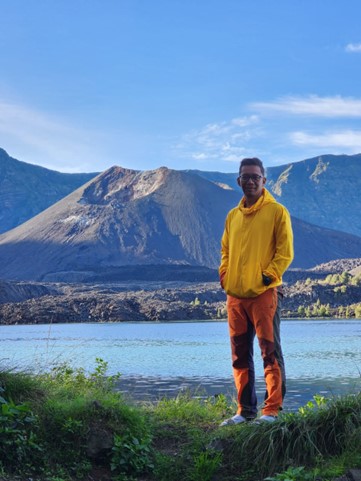
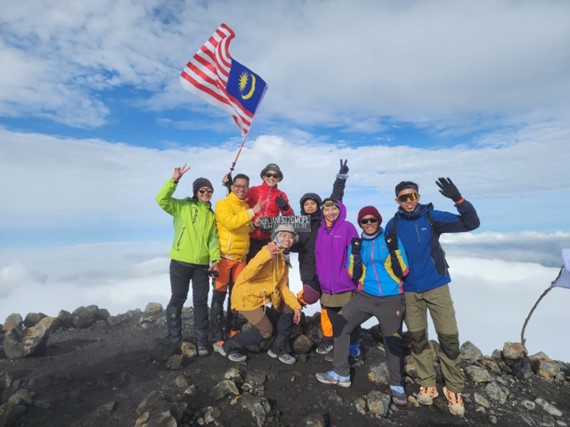
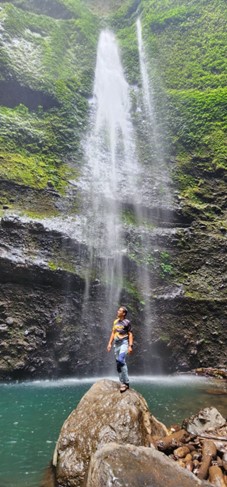
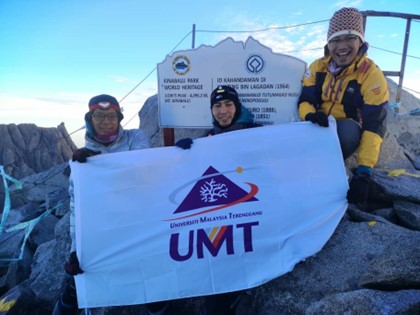

Copyright © INOS | Institute of Oceanography and Environment | Universiti Malaysia Terenganu | 2024. All rights reserved.